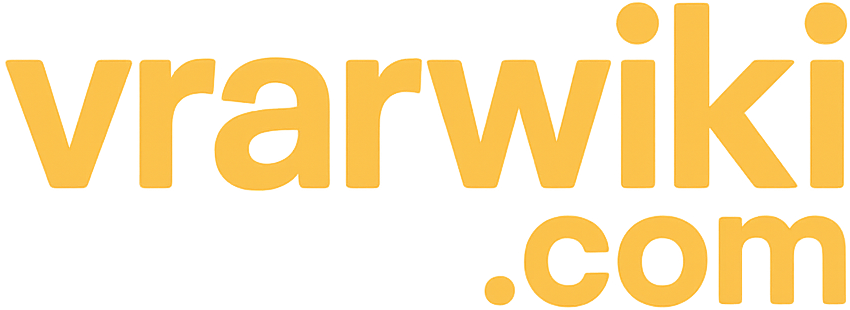Viture Luma Ultra: Difference between revisions
Appearance
Xinreality (talk | contribs) |
Xinreality (talk | contribs) m Text replacement - "e.g.," to "for example" |
||
| Line 142: | Line 142: | ||
The Viture Luma Ultra is the first device in its class to feature a proprietary processing chip that handles all [[six degrees of freedom|6DoF]] calculations directly on the glasses themselves, eliminating the need for external computing units for tracking.<ref name="ultimate-guide"/> This onboard processing allows the Luma Ultra to support 6DoF tracking across different platforms including Windows, macOS, and the [[VITURE Pro Neckband]], though 6DoF functionality is not supported on the [[SpaceWalker]] app for iOS and Android.<ref name="vitureacademy"/> | The Viture Luma Ultra is the first device in its class to feature a proprietary processing chip that handles all [[six degrees of freedom|6DoF]] calculations directly on the glasses themselves, eliminating the need for external computing units for tracking.<ref name="ultimate-guide"/> This onboard processing allows the Luma Ultra to support 6DoF tracking across different platforms including Windows, macOS, and the [[VITURE Pro Neckband]], though 6DoF functionality is not supported on the [[SpaceWalker]] app for iOS and Android.<ref name="vitureacademy"/> | ||
The Ultra model is designed for [[6DoF]] spatial computing, with depth sensing from the dual grayscale cameras and a front [[RGB]] camera. VITURE states Luma Ultra contains a proprietary chip that performs 6DoF calculations directly on the glasses, improving cross-platform support ([[Pro Neckband]], [[Windows]], [[macOS]]), while application-side software ( | The Ultra model is designed for [[6DoF]] spatial computing, with depth sensing from the dual grayscale cameras and a front [[RGB]] camera. VITURE states Luma Ultra contains a proprietary chip that performs 6DoF calculations directly on the glasses, improving cross-platform support ([[Pro Neckband]], [[Windows]], [[macOS]]), while application-side software (for example [[SpaceWalker]] or apps built with the VITURE [[SDK]]) still integrates the tracking data with content.<ref name="ultimate-guide"/> SpaceWalker for Windows and macOS exposes 6DoF on Luma Ultra (and 3DoF functionality for other Luma models), along with multi-screen and screen-pinning features.<ref name="spacewalker-win">VITURE Academy. "SpaceWalker for Windows — multiple virtual displays; 6DoF on Luma Ultra; 3DoF on other Luma models." https://academy.viture.com/xr_glasses/spacewalker_windows</ref><ref name="spacewalker-mac">VITURE Academy. "SpaceWalker for Mac — screen pinning and movement lock controls." https://academy.viture.com/xr_glasses/spacewalker_mac</ref> | ||
This camera array enables advanced features including: | This camera array enables advanced features including: | ||
| Line 190: | Line 190: | ||
* [[Smartphone]]s (iPhone 15 and later, Android devices with [[DisplayPort Alternate Mode|DP Alt Mode]]) | * [[Smartphone]]s (iPhone 15 and later, Android devices with [[DisplayPort Alternate Mode|DP Alt Mode]]) | ||
* [[Handheld game console]]s ([[Steam Deck]], [[Asus ROG Ally]]) | * [[Handheld game console]]s ([[Steam Deck]], [[Asus ROG Ally]]) | ||
* [[Home video game console]]s ( | * [[Home video game console]]s (for example [[PlayStation 5]], [[Xbox Series X/S]], [[Nintendo Switch]] via adapters/VITURE Pro Mobile Dock accessory) | ||
* [[VITURE Pro Neckband]] (standalone [[Android]]-based accessory)<ref name="viture_official"/> | * [[VITURE Pro Neckband]] (standalone [[Android]]-based accessory)<ref name="viture_official"/> | ||
| Line 198: | Line 198: | ||
VITURE provides developer tooling to access Luma Ultra's spatial features: | VITURE provides developer tooling to access Luma Ultra's spatial features: | ||
* '''[[Unity]] SDK''' — The official VITURE Unity XR SDK exposes 6DoF head tracking and [[hand tracking]] (26-joint skeletal model with gesture recognition), integrated with Unity's XR framework ( | * '''[[Unity]] SDK''' — The official VITURE Unity XR SDK exposes 6DoF head tracking and [[hand tracking]] (26-joint skeletal model with gesture recognition), integrated with Unity's XR framework (for example XR Interaction Toolkit and XR Hands).<ref name="unity-sdk">VITURE Developer Portal. "VITURE Unity XR SDK Documentation — 6DoF tracking, hand tracking (26-joint), Unity XR integration." https://developer.viture.com/unity/viture_unity_xr_sdk_doc</ref> | ||
* '''SpaceWalker updates''' — VITURE publishes versioned release notes indicating Luma Ultra 6DoF support on [[Windows]] and [[macOS]] within SpaceWalker.<ref name="spacewalker-release">VITURE. "SpaceWalker — Release Updates (Windows) — includes 'Supports 6DoF on VITURE Luma Ultra XR Glasses.'" https://www.viture.com/release-updates/spacewalker?language=en-US&platform=Windows</ref> | * '''SpaceWalker updates''' — VITURE publishes versioned release notes indicating Luma Ultra 6DoF support on [[Windows]] and [[macOS]] within SpaceWalker.<ref name="spacewalker-release">VITURE. "SpaceWalker — Release Updates (Windows) — includes 'Supports 6DoF on VITURE Luma Ultra XR Glasses.'" https://www.viture.com/release-updates/spacewalker?language=en-US&platform=Windows</ref> | ||
* '''Getting started guides''' — VITURE Academy documentation for SpaceWalker on Windows/macOS includes steps to enable 6DoF (Ultra only) and general usage tips across the Luma series.<ref name="spacewalker-win"/><ref name="spacewalker-mac"/><ref name="vitureacademy"/> | * '''Getting started guides''' — VITURE Academy documentation for SpaceWalker on Windows/macOS includes steps to enable 6DoF (Ultra only) and general usage tips across the Luma series.<ref name="spacewalker-win"/><ref name="spacewalker-mac"/><ref name="vitureacademy"/> | ||

